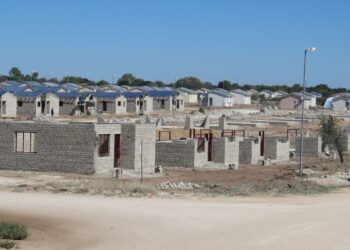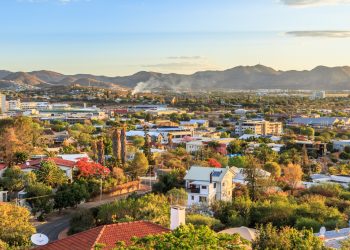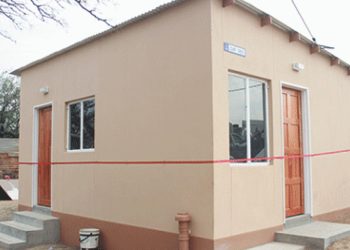
The City of Windhoek approved 928 building plans during the first half of the year with a total value of N$921.9 million, marking a 1.4% increase in number and a 30.0% increase in value compared to the same period in 2023.
IJG Securities reports that on a twelve-month cumulative basis, there has been a 16.3% decrease in the number of approvals and a marginal 0.1% decrease in value compared to the equivalent period from a year ago.
Additionally, 98 building plans, valued at N$50.5 million, were completed in the month. In June, the city approved a total of 149 building plans, a decrease of 20.7% from the 188 approvals in May.
The total value of June’s approvals amounted to N$109.0 million, which is 42.3% lower than May’s approvals.
Meanwhile, Windhoek’s twelve-month cumulative number and value of residential approvals have been hovering above 330 units and N$630.0 million for the past few months, with 334 units valued at N$633.6 million approved by the end of June.
IJG Securities reveals that this is however 40.7% y/y lower in number terms, but 1.1% more in value terms when compared to the corresponding 12-month period a year ago.
“During the first six months of 2024, 169 residential building plans, worth N$402.9 million have been approved. This is 17.6% lower in number terms when compared to the same point last year, but 72.9% more in value terms,” the firm noted.
In June 2024, approvals were granted for a total of 26 residential units valued at N$51.1 million, which is nine units lesser than the previous month and represents a decrease of N$7.52 million in total value.
“32 residential units worth N$32.8 million were completed during the month, slightly more than the monthly average of 24 witnessed for the year thus far,” said IJG. Simonis Storm Securities said building activities in Swakopmund picked up in the second quarter of 2024, with 179 approvals valued at N$161.5 million and 230 completed building projects valued at N$114.4 million.
Consequently, the total number of approved plans for the first half of 2024 reached 311, up from 283 in 1H2023, while completed plans increased to 294 from 197 in 1H2023.
Simonis Storm Junior Economist Halleluya Ndimulunde said that most of the approved building plans in both Windhoek and Swakopmund predominantly focused on the residential segment of the market.
“In Windhoek, the majority of the building plans are for additions (116), indicating a strong emphasis on expanding existing structures. This is followed by house construction (26), walls (14), and a smaller number of commercial projects (7) and pools (1),” she said.
Ndimulunde noted that this distribution suggests a trend towards enhancing and enlarging current properties rather than initiating new builds.
Meanwhile, in Swakopmund, residential projects dominate the new building plans with 56 approvals, highlighting significant growth in housing.
“This is followed by commercial buildings (5) and institutions (4), with minimal activity in the industrial sector (1). This indicates that the primary focus in Swakopmund is on residential development, possibly driven by increasing demand for housing,” she said.
She noted that the data indicates key insights, despite fewer new construction proposals, an increased number of approved building plans suggests a higher approval rate, possibly due to improved processes or greater developer confidence.
“Windhoek’s emphasis on property expansions reflects a mature market strategy, enhancing existing structures in response to urban renewal or modern demands. In contrast, Swakopmund’s focus on new residential constructions highlights a growing housing market driven by economic and population growth, addressing shortages and planning for future development,” she said.











